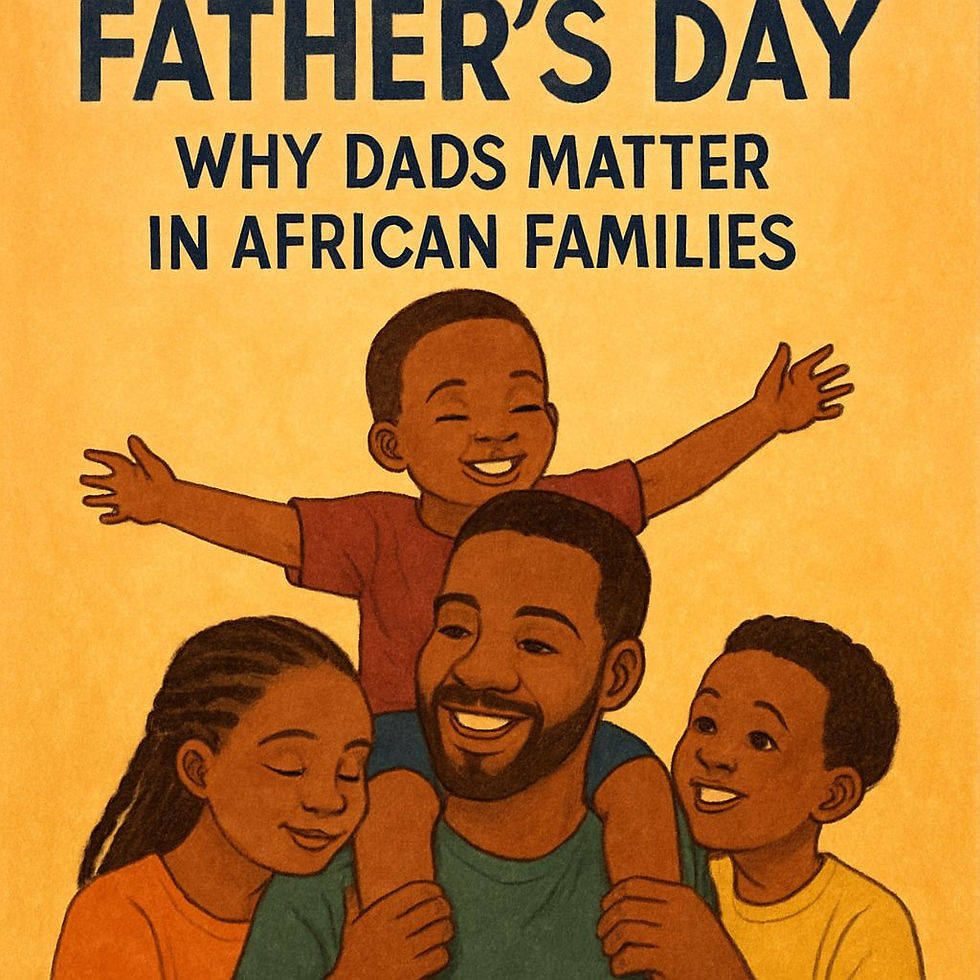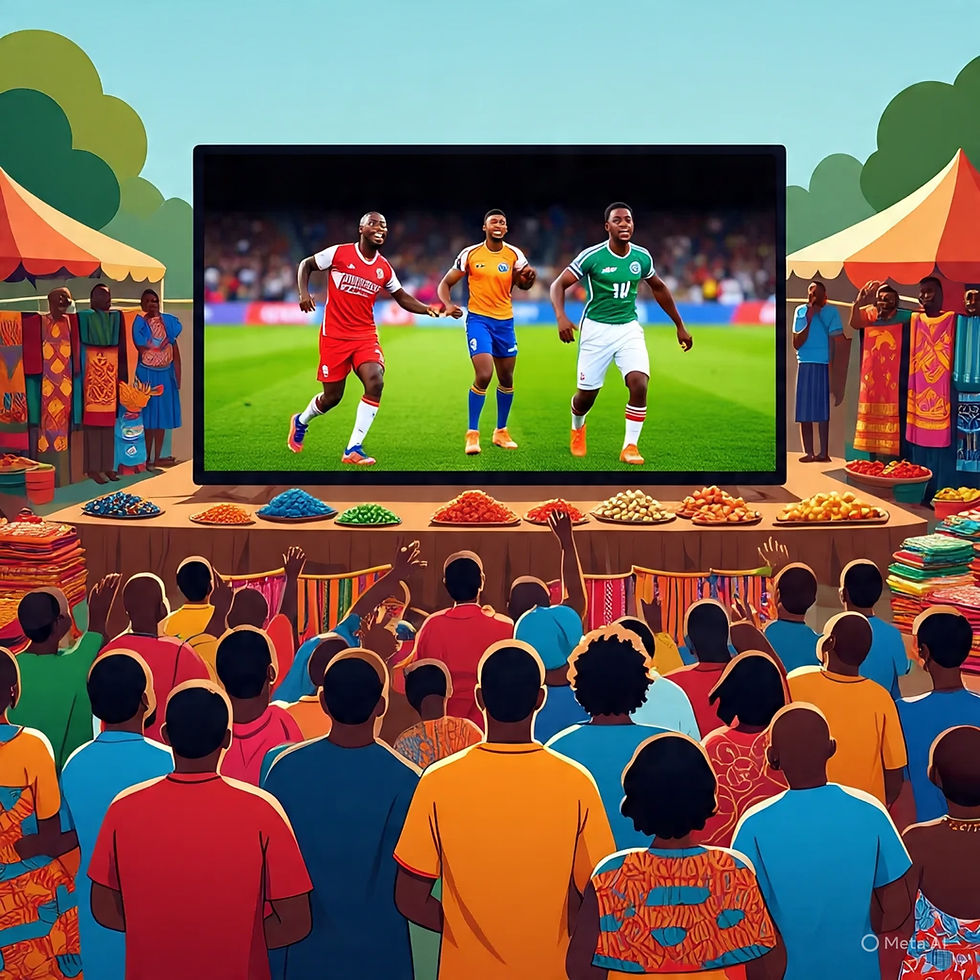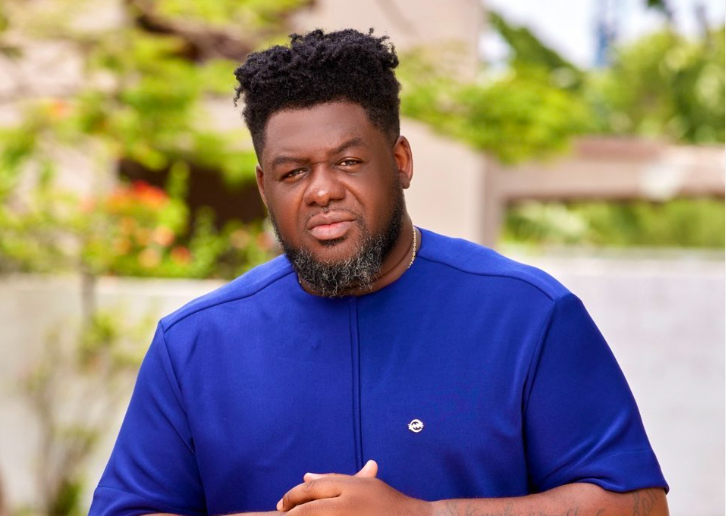The History and Importance of Father’s Day: Why Dads Matter in African Families
- orpmarketing
- Jun 14, 2025
- 4 min read

Father’s Day always feels like it sneaks up. One day you’re caught up in daily life, the next you’re hunting for a gift that says, Dad, you’re the best. But have you ever stopped to think about where this day comes from or why it’s such a big deal, especially in African communities where fathers shape young lives in profound ways? Let’s explore the story behind Father’s Day and why dads are so vital, particularly in Africa.
How Father’s Day Began
The idea for Father’s Day started over a century ago in the United States. A woman named Sonora Smart Dodd wanted to honor her father, a single parent who raised six kids on his own. Inspired by his dedication, she pushed for a day to celebrate fathers, just like Mother’s Day did for moms. In 1910, her efforts led to the first Father’s Day in Spokane, Washington, on June 19.
It wasn’t an instant hit, though. Some folks thought it was too sappy or just a way to sell greeting cards. It took until 1972 for President Richard Nixon to make it an official U.S. holiday, set for the third Sunday in June. From there, it spread worldwide, with different countries picking their own dates. In 2025, many places, including parts of Africa, will celebrate it on June 15, though some, like Australia, do it in September.
The point of the day? To shine a spotlight on fathers and the quiet, steady ways they hold families together.
Why Father’s Day Matters
Father’s Day isn’t just about handing out World’s Best Dad mugs. It’s a moment to recognize how fathers, stepdads, grandfathers, and mentors shape lives. Dads today do more than bring home a paycheck, they’re changing diapers, giving advice, and cheering from the sidelines. The day celebrates that evolution and reminds us to say thanks for their presence, even if it’s not always perfect.
In African communities, where family and community are everything, this celebration carries extra weight. Fathers here aren’t just parents, they’re anchors for entire households and sometimes whole villages.
The Role of Fathers in African Families
In Africa, fathers hold a special place. They’re often seen as the backbone of the family, carrying the weight of responsibility with quiet strength. But it’s not just about providing or laying down rules, African dads are teachers, storytellers, and keepers of culture.
A Cultural Anchor
In many African traditions, fathers guide not only their own kids but also others in the community. Among the Yoruba in Nigeria, for example, dads teach values like respect and hard work, shaping kids into responsible adults. In Kenya’s Luo community, fathers pass down stories that tie children to their roots. I once heard a friend from Ghana talk about how his dad, a farmer, would gather everyone after dinner to share tales of Anansi the spider. Those evenings weren’t just fun, they taught lessons about wit, kindness, and survival.
Facing Challenges, Building Futures
Being a father in Africa can be tough. Many dads juggle providing for large families with economic pressures like scarce jobs or rising costs. In rural areas, you’ll find fathers farming or herding, showing their kids what resilience looks like. In cities, they’re often pushing for their children’s education, even when money’s tight.
Research backs up what we see: kids with involved fathers tend to do better in school, feel more confident, and handle emotions well. In African settings, where extended families amplify a father’s influence, their role is even bigger. A dad’s guidance can steer a child toward a brighter future, whether it’s teaching a son to farm or encouraging a daughter to chase her dreams in a world that doesn’t always make it easy.
Changing with the Times
African fathers are adapting, too. You’ll see modern dads in cities like Lagos or Nairobi helping with homework or carrying toddlers on their shoulders at the market. Even in more traditional communities, fathers are finding ways to balance authority with warmth. It’s a shift that’s reshaping what fatherhood means, making it more hands-on and connected.
How Africa Celebrates Father’s Day
Father’s Day in Africa doesn’t always mean big parties or expensive gifts. Often, it’s about small, meaningful moments, a handwritten note, a family meal, or prayers together at church or mosque. In South Africa, families might fire up a braai, grilling meat and laughing together. In Ghana, kids might surprise their dad with a piece of kente cloth or a plate of his favorite jollof rice.
But the real celebration happens every day. It’s the father walking miles to pay school fees, fixing a bike late at night, or teaching his kids the songs of their grandparents. Those moments build not just memories but futures.
Why We Keep Celebrating
Father’s Day is a nudge to pause and appreciate the men who show up. In African families, where community ties run deep, fathers do more than raise kids, they shape generations. They’re not flawless, but their efforts leave a lasting mark.
This June 15, take a second to reach out to your dad or father figure. Share a memory, cook something special, or just say thanks. If you’re in Africa, maybe whip up some fufu or grilled fish to make it feel like home. And if you’re a dad, know that your kids see you, even when they don’t say it.
How do you celebrate Father’s Day? Share your thoughts in the comments, and pass this along to someone who’d love to read it!




Comments